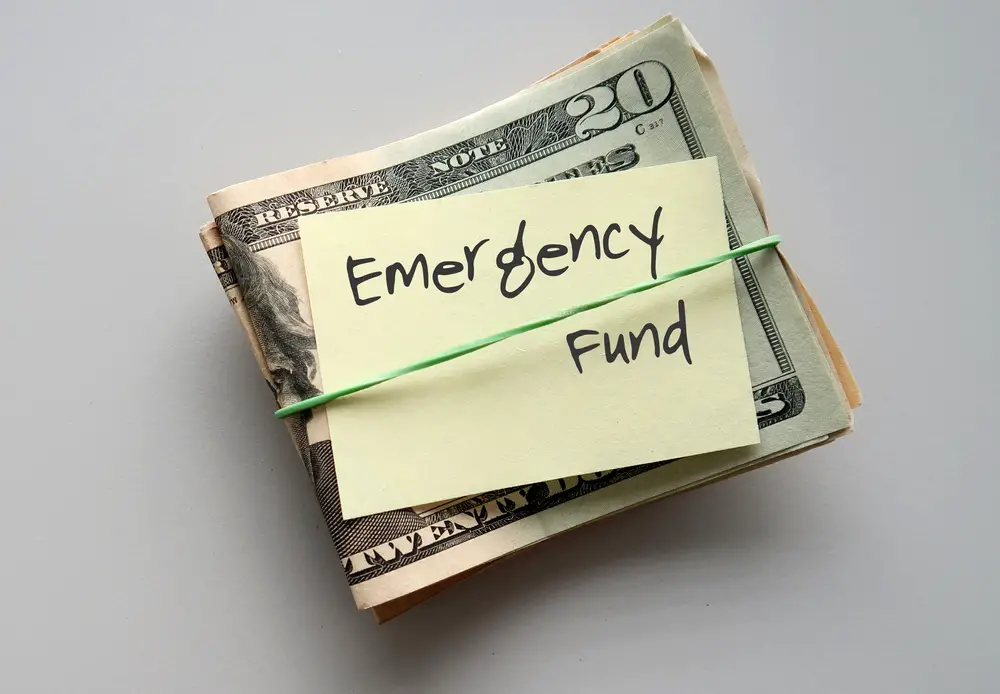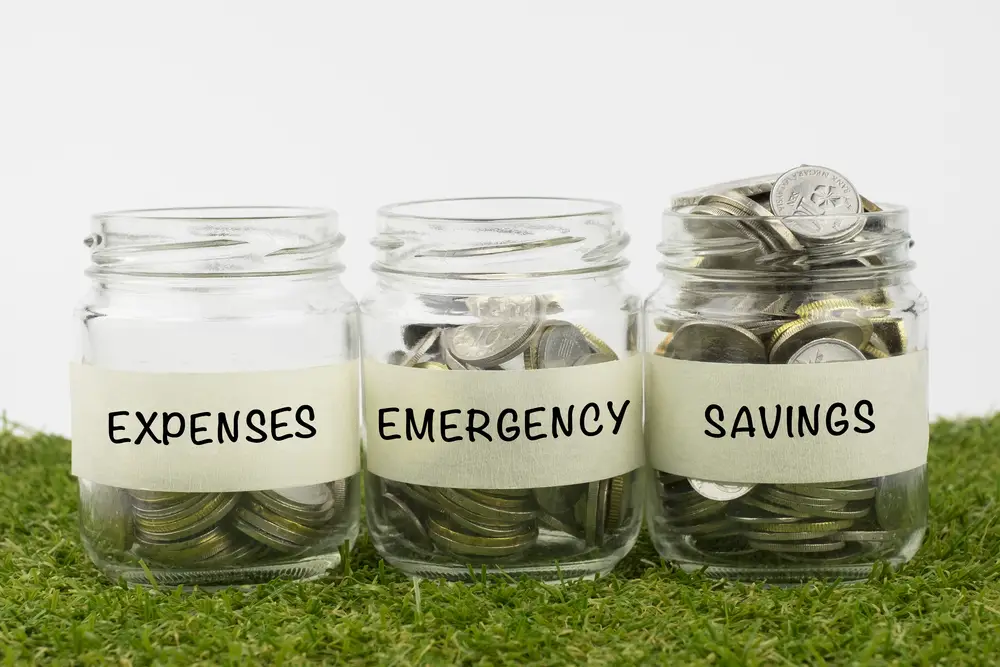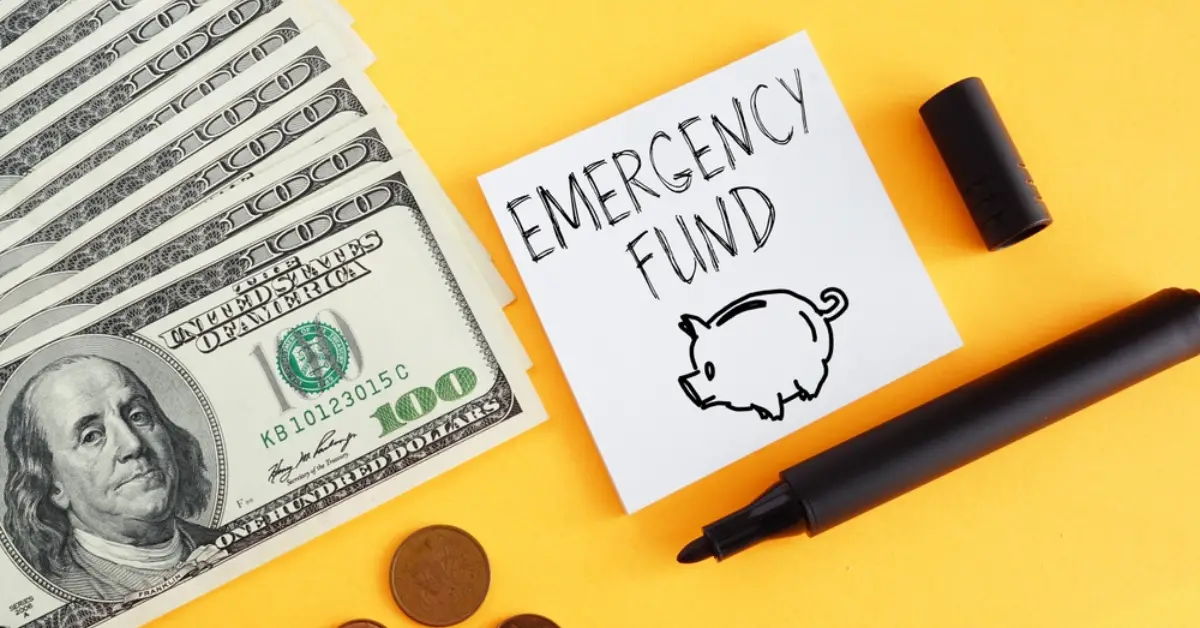Importance of Emergency Fund in U.S. Personal Finance ! When life throws unexpected financial challenges your way, having an emergency fund can be your safety net. It’s like a financial cushion that’s there to soften the blow when unexpected expenses arise. But what exactly is an emergency fund, and why is it so crucial in the U.S.? Let’s dive in.
What is an Emergency Fund?
An emergency fund is essentially a stash of money that you set aside to cover unforeseen expenses. These could be anything from unexpected medical bills, car repairs, to even a sudden loss of income.
Think of it as a financial buffer that keeps you afloat when life’s uncertainties try to knock you down. It’s not just about saving money; it’s about protecting your financial well-being.
Why is an Emergency Fund Crucial in the U.S.?
In the U.S., where the cost of living can be high and the economy can be unpredictable, having an emergency fund is not just a good idea; it’s essential.
The U.S. healthcare system, for example, is notoriously expensive, and a medical emergency can lead to significant financial strain if you’re not prepared.
Additionally, with job markets that can fluctuate and economic downturns that can come without warning, an emergency fund is your safeguard against the unpredictable.

Defining an Emergency Fund
So, what exactly qualifies as an emergency fund? It’s more than just some cash tucked away under your mattress.
An emergency fund is a specific amount of money, usually recommended to be three to six months’ worth of your living expenses, that is kept in a readily accessible account.
This means it’s there when you need it, without having to wait for investments to mature or sell assets that might be difficult to liquidate in a hurry.
How Much Should You Save?
The amount you should save in your emergency fund can vary depending on your personal circumstances. A good rule of thumb is to have enough to cover three to six months of living expenses.
This includes rent or mortgage payments, utilities, groceries, and any other essential costs you incur on a monthly basis.
However, if your job is particularly unstable or your expenses are high, you might want to aim for the higher end of that spectrum—or even beyond it. The key is to assess your own situation and save accordingly.
Liquid vs. Non-Liquid Funds
When it comes to emergency funds, liquidity is key. Liquidity refers to how quickly and easily you can access your money. For an emergency fund, you want your money to be as liquid as possible, meaning it should be in cash or in a savings account that you can access immediately.
Non-liquid assets, like stocks or real estate, can be challenging to convert into cash on short notice, and their value might fluctuate, which makes them less reliable in an emergency.
This is why financial experts recommend keeping your emergency fund in a high-yield savings account, which offers both accessibility and some growth on your savings.
Protecting Against Uncertainty
Life is full of surprises, some of which can be financially challenging. One day, everything might seem fine, and the next, you could be facing a job loss, a medical emergency, or an unexpected home repair.
Without an emergency fund, such events could leave you in a precarious financial position, forcing you to rely on credit cards or loans to cover your expenses.
An emergency fund acts as a financial shield, protecting you from the full impact of these surprises and allowing you to manage them without derailing your financial stability.
Handling Unexpected Expenses
We’ve all been there—your car breaks down, your washing machine suddenly stops working, or you receive an unexpected medical bill. These kinds of expenses can throw your budget completely off course if you’re not prepared. An emergency fund ensures that these surprises don’t derail your financial plan.
Instead of scrambling to find the money or resorting to credit cards, you can dip into your emergency fund to cover the cost. This not only keeps you from going into debt but also helps you maintain your financial stability during tough times.
Maintaining Financial Stability
One of the key benefits of an emergency fund is its role in maintaining financial stability. When unexpected expenses arise, they can create a ripple effect that disrupts your entire financial situation.
Without an emergency fund, you might have to choose between paying your bills and covering the emergency expense.
This could lead to missed payments, late fees, and even damage to your credit score. An emergency fund helps you avoid these scenarios by providing the resources you need to handle emergencies while still meeting your financial obligations.
Steps to Start Your Emergency Fund
Starting an emergency fund might seem daunting, especially if you’re starting from scratch. But the key is to start small and be consistent.
Begin by setting a modest goal—say, $500—and work your way up from there. Once you’ve reached your initial goal, aim to save one month’s worth of expenses, then two, and so on until you’ve built up three to six months’ worth of savings.
Breaking it down into smaller, achievable goals can make the process feel less overwhelming and more manageable.
Tips for Consistent Savings
Consistency is crucial when it comes to building an emergency fund. One of the most effective strategies is to automate your savings.
Set up automatic transfers from your checking account to your savings account each month, so you’re consistently contributing to your emergency fund without having to think about it.

Another tip is to cut back on non-essential expenses. Take a close look at your budget and see where you can trim the fat. Maybe you can eat out less often, skip that daily coffee shop run, or cancel subscriptions you don’t use. Every dollar you save can go toward building your emergency fund.
Where to Keep Your Emergency Fund
Your emergency fund needs to be easily accessible, but not too accessible that you’re tempted to dip into it for non-emergencies. A high-yield savings account is a good option because it offers both accessibility and some interest growth.
Some people also opt to keep their emergency fund in a money market account, which can offer higher interest rates than a standard savings account. The key is to find a balance between accessibility and growth, so your money is there when you need it, but still working for you in the meantime.
Common Pitfalls
Building an emergency fund isn’t always easy, and many people struggle with common pitfalls. One of the most significant challenges is underestimating your expenses.
It’s easy to forget about irregular expenses like car maintenance or annual insurance premiums when calculating how much you need to save.
Another common pitfall is not prioritizing your emergency fund. With so many competing financial goals, it’s easy to let your emergency fund take a backseat. However, it’s essential to prioritize it because it underpins all your other financial goals.
Also Read – Effective ways to save money on a low income in America
Overcoming Temptation to Use the Fund
Once you’ve built up your emergency fund, it can be tempting to dip into it for things that aren’t true emergencies—like a vacation, a new gadget, or a big sale. But using your emergency fund for non-essentials defeats its purpose and leaves you vulnerable when a real emergency strikes.
To avoid this, it’s important to clearly define what qualifies as an emergency. Stick to your definition and resist the temptation to use your emergency fund for anything else.
Remember, the goal is to protect your financial security, and that means keeping your emergency fund intact for when you really need it.
Reducing Financial Stress
Financial stress is one of the leading causes of anxiety and even depression. When you’re constantly worried about money—whether it’s how to pay for an unexpected bill or how to make ends meet during a period of unemployment—it can take a toll on your mental and physical health.
An emergency fund can significantly reduce this stress by providing a safety net that gives you the confidence to face financial challenges head-on.
Knowing that you have a financial cushion can help you sleep better at night and focus on other aspects of your life without the constant worry of what might happen if things go wrong.
Providing Peace of Mind
Beyond the financial protection an emergency fund offers, it also provides something just as valuable: peace of mind. There’s a certain comfort in knowing that no matter what life throws your way, you’re prepared.
This peace of mind allows you to make better financial decisions because you’re not operating from a place of fear or desperation.
It’s easier to stick to your budget, avoid unnecessary debt, and make sound financial plans for the future when you know you have a safety net in place.
“I Don’t Make Enough to Save”
One of the most common myths about emergency funds is that they’re only for people who make a lot of money. But the truth is, everyone, regardless of income level, can benefit from having an emergency fund.
Even if you’re on a tight budget, it’s possible to start small and build your fund over time. Every dollar you save is a step toward financial security, and over time, those small contributions can add up to a significant amount. The key is to start where you are and focus on making consistent progress.
“Credit Cards are Just as Good”
Another myth is that credit cards can replace an emergency fund. While it’s true that credit cards can be helpful in a pinch, they’re not a substitute for an emergency fund. Credit cards come with interest rates and fees, which can quickly add up and lead to debt.
Plus, relying on credit can create a cycle of borrowing that’s hard to break. An emergency fund, on the other hand, allows you to cover unexpected expenses without incurring additional debt. It’s a safer, more sustainable option for managing financial emergencies.
The Long-Term Benefits of an Emergency Fund
Building and maintaining an emergency fund is one of the smartest financial moves you can make. In the short term, it helps you manage unexpected expenses and avoid debt. But the benefits don’t stop there.
In the long term, an emergency fund strengthens your overall financial health. It allows you to stay on track with your financial goals, avoid high-interest debt, and build wealth over time.
When you’re not constantly worried about how you’ll handle the next financial emergency, you’re free to focus on bigger financial objectives like investing, saving for retirement, or buying a home.
An emergency fund acts as a foundation for all these goals, giving you the stability and confidence you need to make sound financial decisions.
Also Read – Best Ways to Pay Off Student Loan Debt Quickly
Moreover, having an emergency fund can prevent you from making rash decisions during a crisis. For instance, if you lose your job and don’t have a financial cushion, you might feel pressured to take the first job offer that comes your way, even if it’s not the right fit. But with an emergency fund, you have the financial flexibility to wait for a better opportunity that aligns with your long-term career goals.
In essence, an emergency fund is more than just a pool of money—it’s a key component of a healthy financial plan. It protects you in the short term while also supporting your long-term financial well-being. By reducing stress, preventing debt, and providing financial stability, an emergency fund allows you to live with greater peace of mind and financial freedom.
Conclusion
An emergency fund is not just an optional part of personal finance; it’s a necessity, especially in the U.S., where unexpected expenses can arise at any moment.
Whether you’re dealing with medical bills, sudden job loss, or other financial surprises, an emergency fund provides the security you need to navigate life’s uncertainties without compromising your financial future.
Starting and maintaining an emergency fund requires discipline and consistency, but the effort is well worth it. By prioritizing your emergency fund, you’re setting yourself up for long-term financial success and stability.
Remember, it’s not just about the money—it’s about the peace of mind and financial security that comes with knowing you’re prepared for whatever life throws your way.
FAQs
What qualifies as an emergency expense?
An emergency expense is any unforeseen cost that must be addressed immediately. This includes things like unexpected medical bills, urgent car repairs, sudden home repairs, or even expenses related to job loss. The key is that the expense is both necessary and unexpected.
How often should I replenish my emergency fund?
Ideally, you should replenish your emergency fund as soon as possible after using it. The goal is to ensure that you’re always prepared for the next unexpected event. Some people choose to make replenishing their emergency fund a priority in their budget until it’s fully restored.
Can I use my emergency fund for investment opportunities?
No, your emergency fund should be reserved strictly for emergencies. Using it for investment opportunities defeats the purpose of having the fund in the first place. Investments come with risks, and if you lose money, you could find yourself without the safety net you need in an actual emergency.
Is it necessary to have multiple emergency funds?
While one general emergency fund is sufficient for most people, some prefer to have separate funds for specific types of emergencies. For example, you might have one fund for general emergencies and another specifically for medical expenses or job loss. This can help you manage your finances more effectively, but it’s not a necessity for everyone.
How do I know if my emergency fund is sufficient?
Your emergency fund is considered sufficient if it covers three to six months of living expenses. However, this amount may vary based on your personal circumstances. It’s important to periodically reevaluate your fund to ensure it meets your current needs. If your expenses have increased or your situation has changed, you may need to adjust your savings goal accordingly.


1 thought on “Importance of Emergency Fund in U.S. Personal Finance”